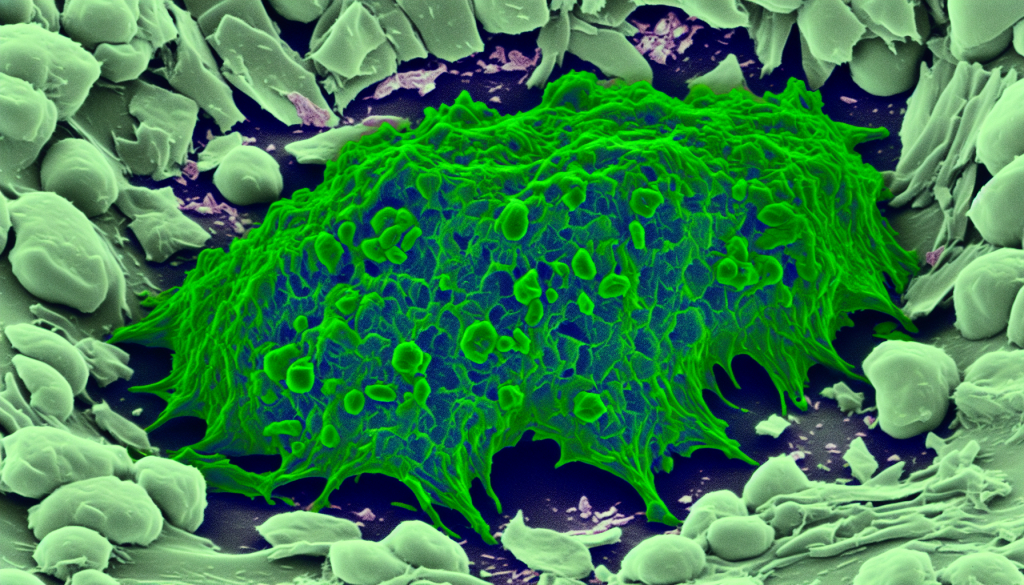Blood cancer treatment may boost the effectiveness of radiotherapy for brain tumors

Recent research suggests that drugs originally designed for treating blood and other cancers might also enhance the effectiveness of radiotherapy for the most commonly diagnosed low-grade brain tumors in adults.
Meningiomas constitute roughly 36% of all primary brain tumors. While most of these tumors can be successfully removed via surgery, some remain difficult to access and are treated with radiotherapy. Unfortunately, radiotherapy can lead to significant side effects, including radiation-induced brain damage, and in some cases, tumors may prove resistant, leading to their continued growth.
A study conducted by scientists at the Brain Tumour Research Centre of Excellence located at the University of Plymouth delved into the effects of radiation-induced damage, while exploring techniques to mitigate it.
Using meningioma cells for their research, scientists identified that radiation causes cells to produce higher levels of an enzyme called Histone deacetylase 6 (HDAC6), which has previously been linked to the advancement of tumor growth.
However, by administering Cay10603, an HDAC6 inhibitor, ahead of radiotherapy sessions, researchers were able to limit tumor cell growth and promote cell death within meningioma samples.
This study, published in the journal eBioMedicine, was spearheaded by Dr. Juri Na and Professor Oliver Hanemann. They noted that their results signify a potentially new and promising method to improve outcomes in the treatment of malignant meningiomas.
This research builds on considerable ongoing efforts at the Plymouth Centre of Excellence, which focuses on repurposing FDA- and EMA-approved drugs to aid brain tumor patients.
Dr. Na, the study's lead author and Senior Research Fellow, explained: “Cay10603 was originally developed as a target for HDAC, a target also shared by some approved treatments for blood cancers. Our findings show that combining this drug with radiotherapy reduces tumor cell proliferation and increases cell death. This combo allows for more efficient killing of cancer cells, with the added benefit of using lower radiation doses, reducing harmful side effects typically associated with high-dose radiation.”
Professor Hanemann, Director of the Brain Tumour Research Centre of Excellence, added: “Although Pan-HDAC inhibitors have already received FDA and EMA approval, Cay10603 is not yet licensed in the UK. Additionally, no HDAC inhibitors of this kind are currently in clinical use. While there are still several hurdles before this approach reaches patients, this discovery is a step forward considering the scarcity of treatment options available to meningioma patients.”
Brain Tumour Research is committed to funding long-term research at select centers in the UK. In doing so, they advocate for the Government and major cancer charities to increase investments in brain tumor research, accelerating the development of new treatments for patients. The charity is leading efforts to allocate £35 million annually, hoping to improve patient survival rates and outcomes, comparable to advancements seen in breast cancer and leukemia.
Dr. Karen Noble, the Director of Research, Policy and Innovation at Brain Tumour Research, shared her enthusiasm: “We’re thrilled by this innovative treatment strategy coming from our Centre of Excellence at the University of Plymouth. It’s crucial we support this early-stage research, as it paves the way for more effective treatments. We hope this significant progress will soon lead to clinical trials for meningioma patients.”
The Patient’s Voice
Katie Everett, a 31-year-old from Romsey, Hampshire, was diagnosed with meningioma in July 2021. After undergoing two surgeries and a six-week course of radiotherapy, Katie’s latest MRI from February 2024 showed stable results, with no signs of tumor regrowth. However, she continues to take thyroid and hormone medications.
Katie remarked: “This breakthrough is incredibly promising. It’s comforting to know that potential new treatments are in the works for people like me. While I was in the hospital, I met a woman with numerous brain tumors who had endured repeated rounds of radiotherapy. Knowing that advancements like this could help people like her in the future is truly heartening.”
Journal
EBioMedicine
DOI
10.1016/j.ebiom.2024.105211
Method of Research
Experimental study
Subject of Research
Cells
Article Title
Targeting histone deacetylase 6 (HDAC6) to enhance radiation therapy in meningiomas in a 2D and 3D in vitro study
Article Publication Date
24-Jun-2024

